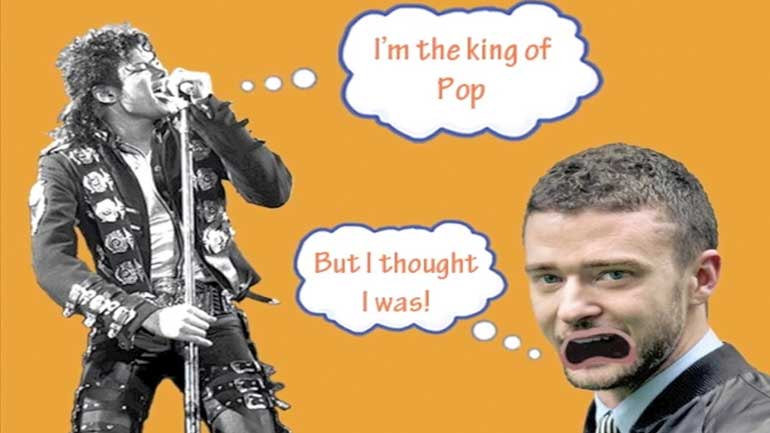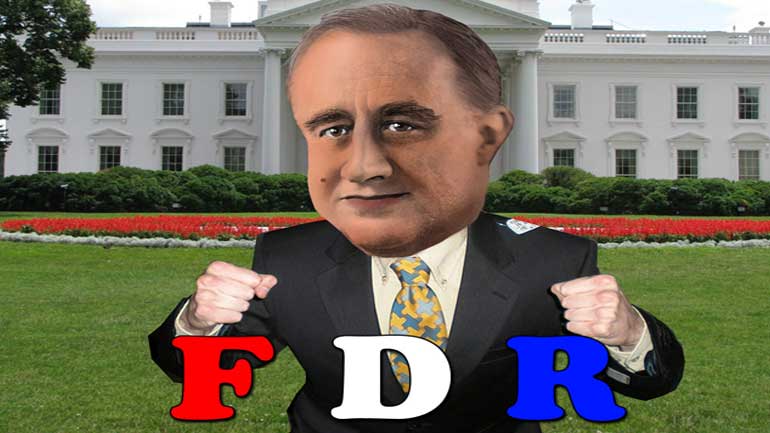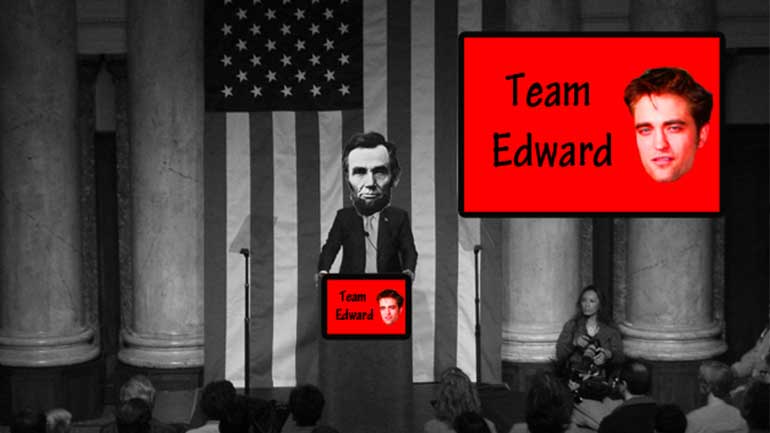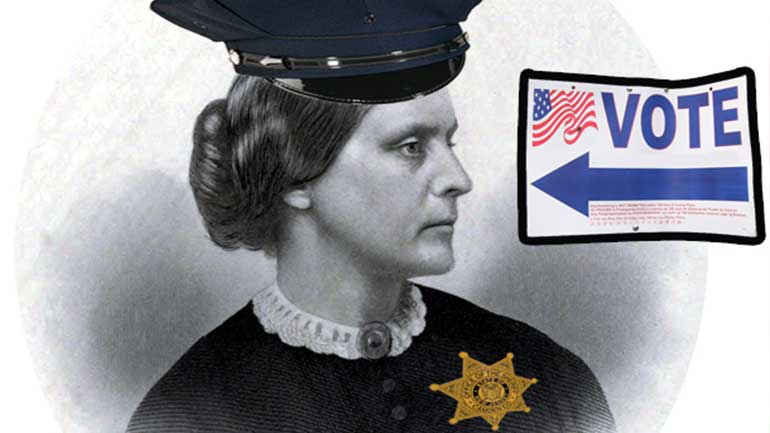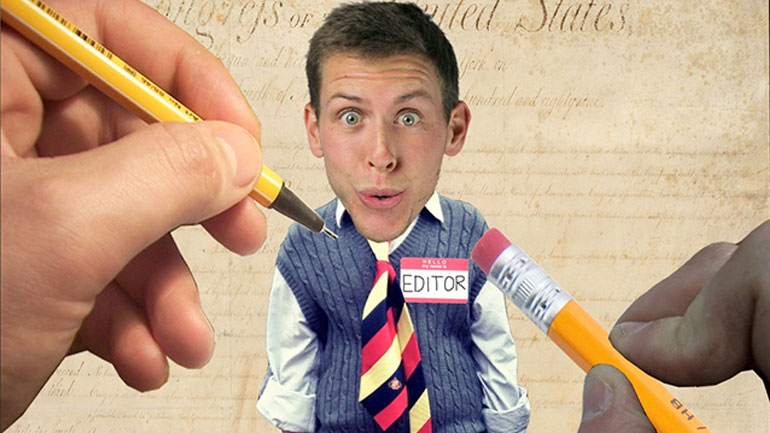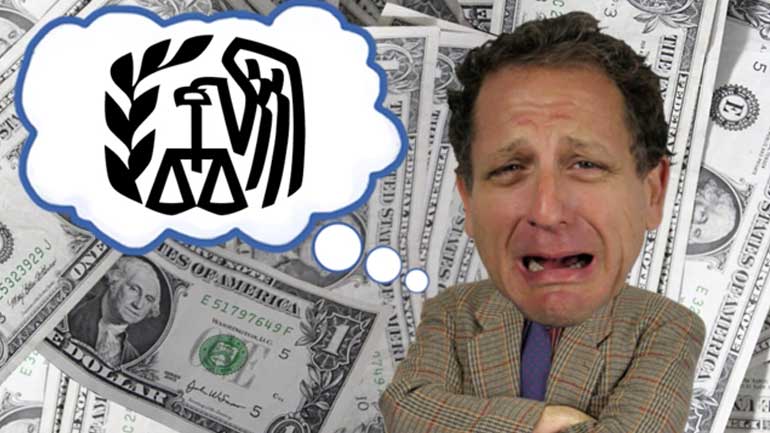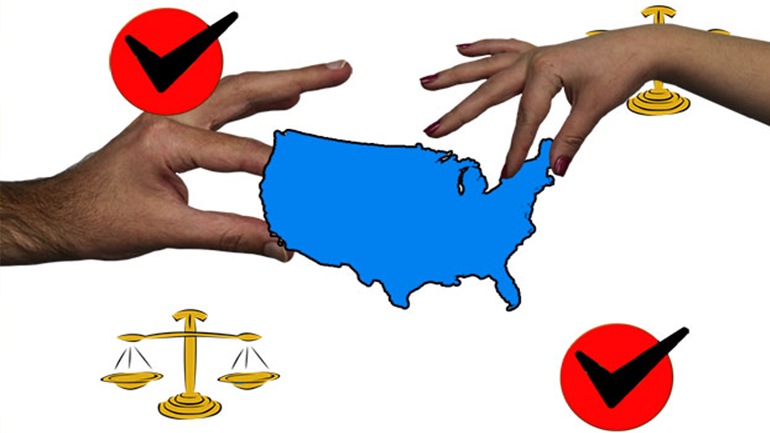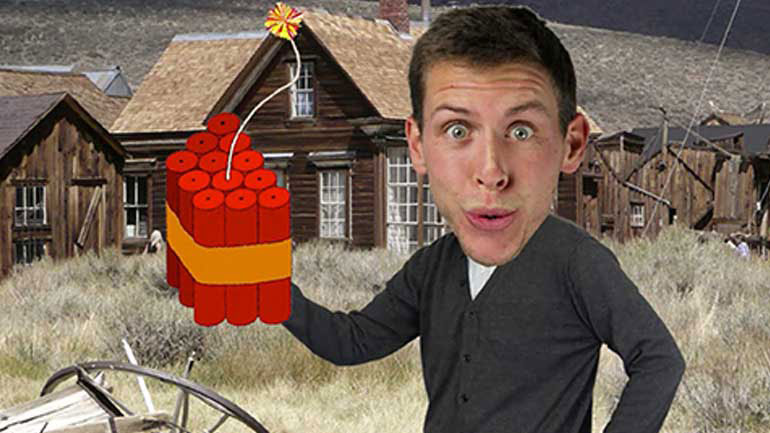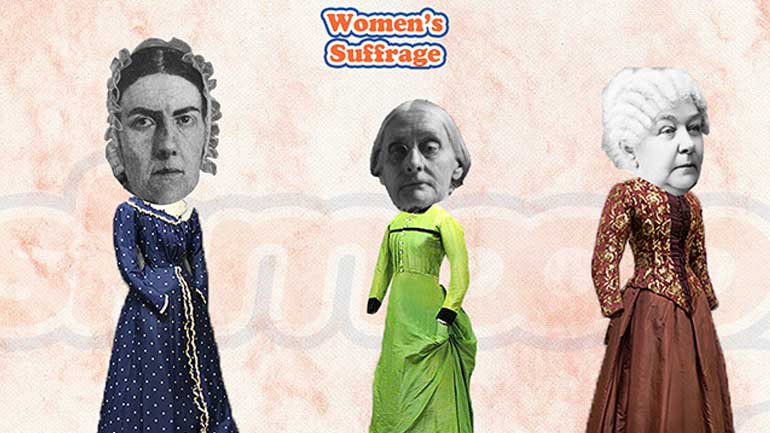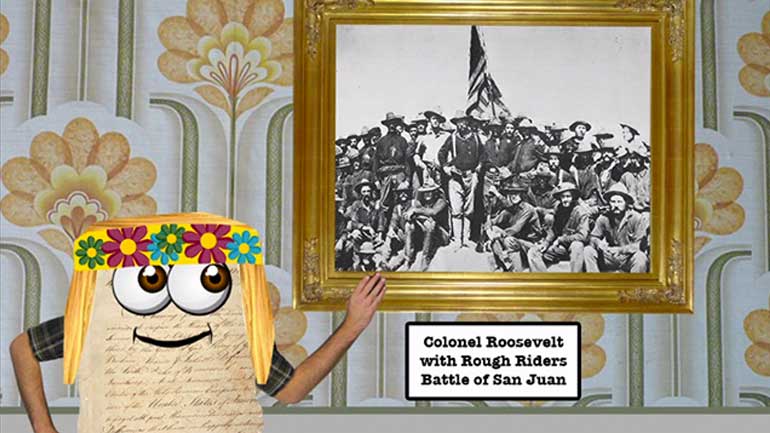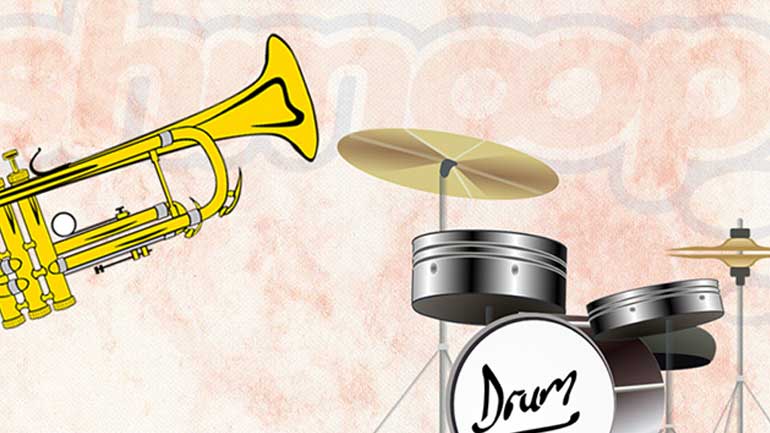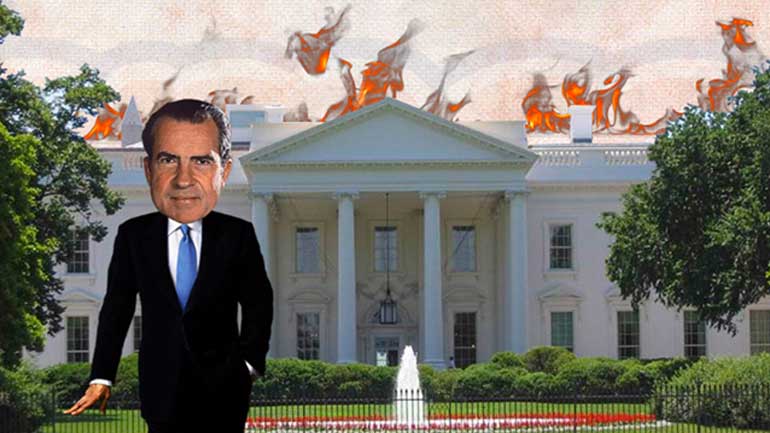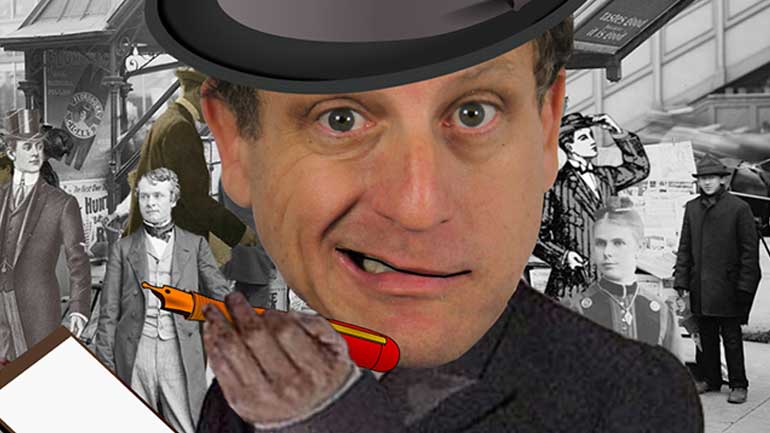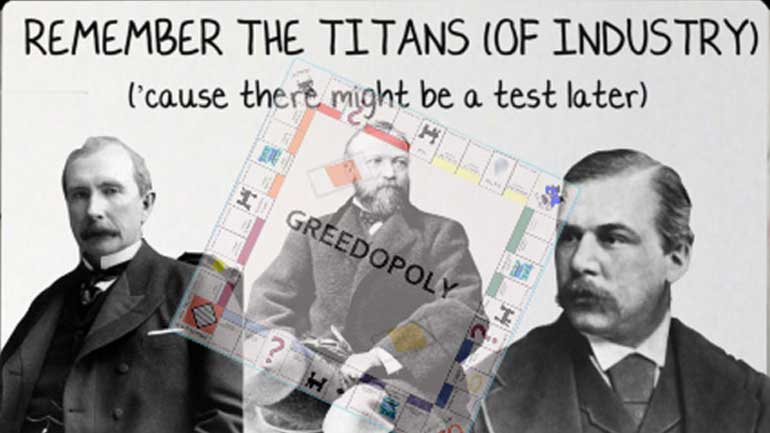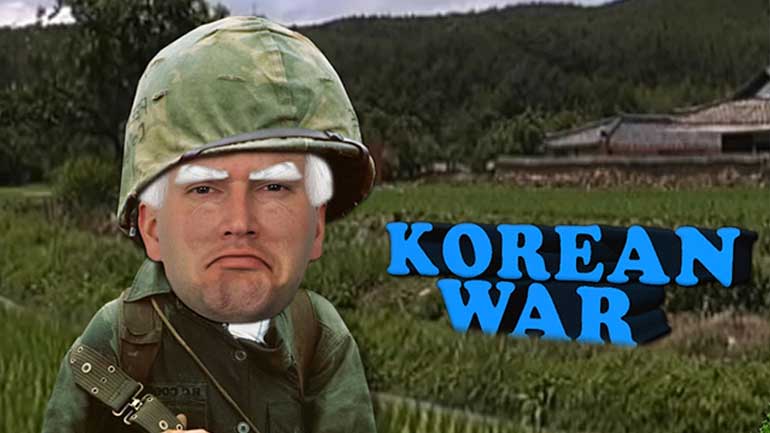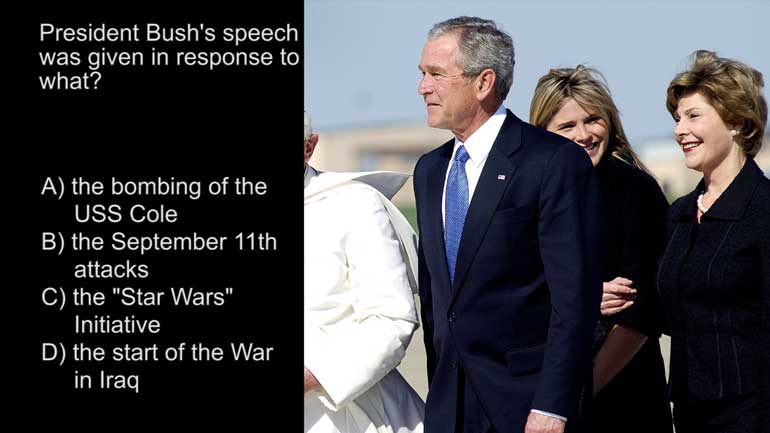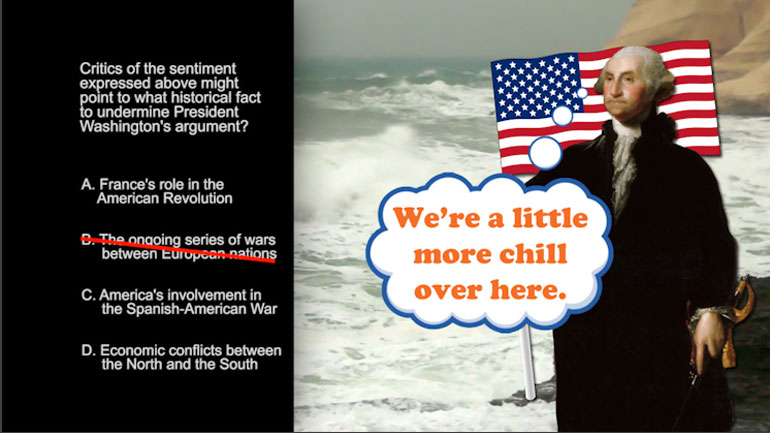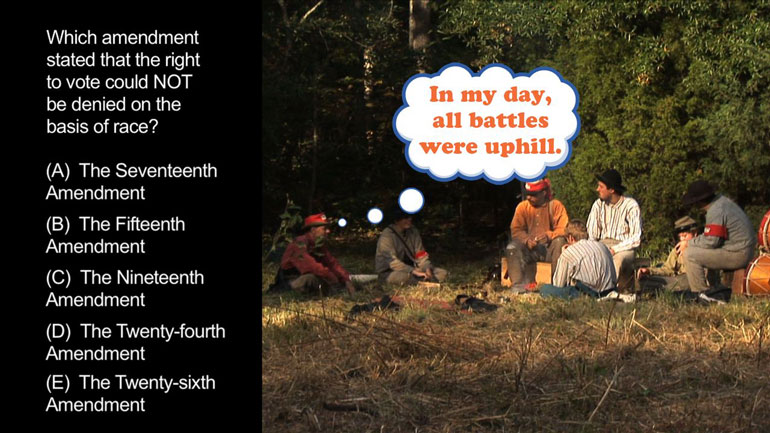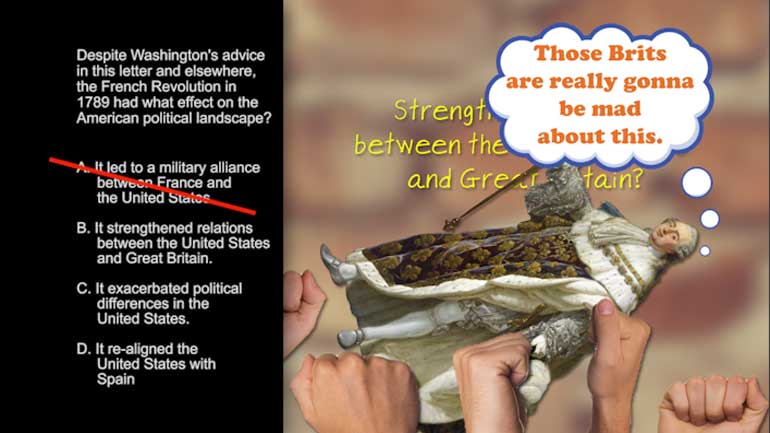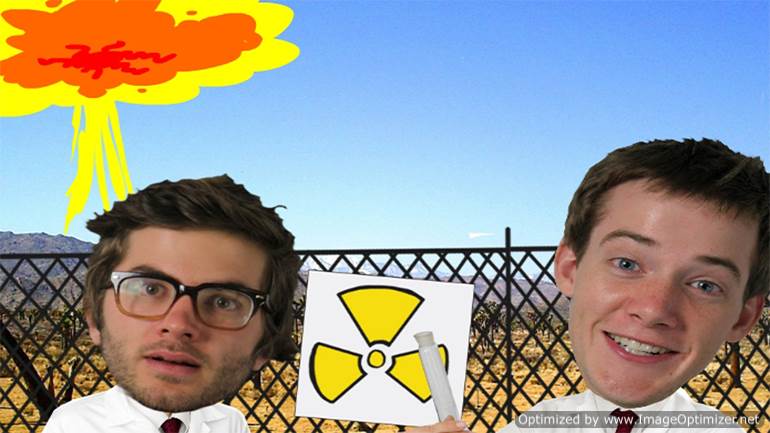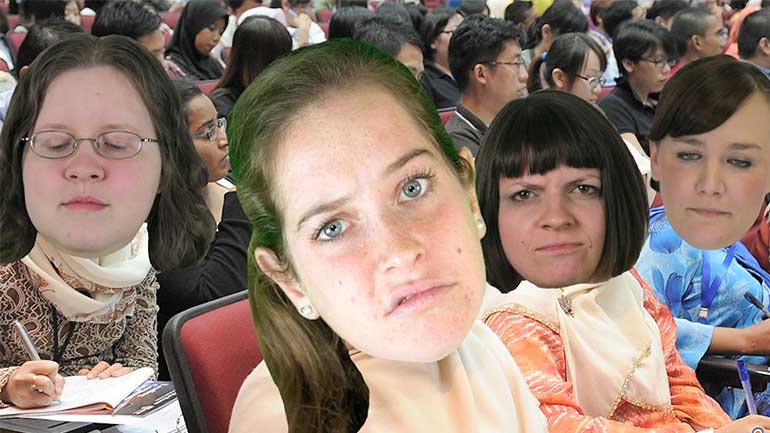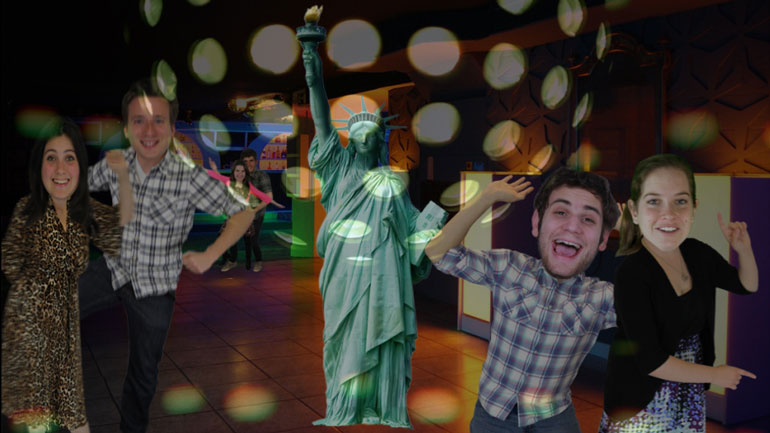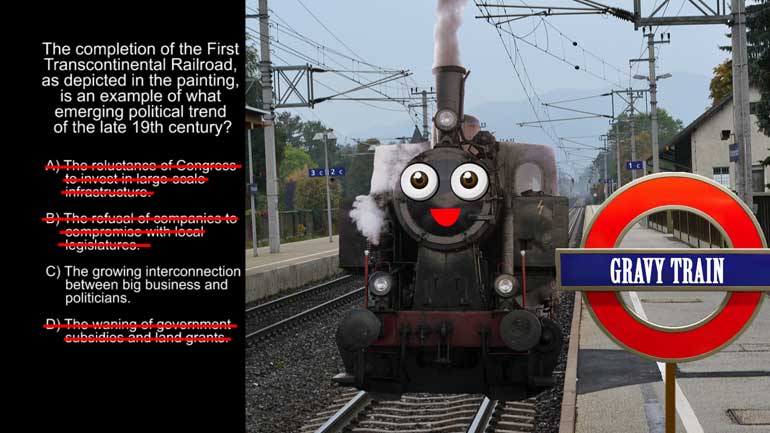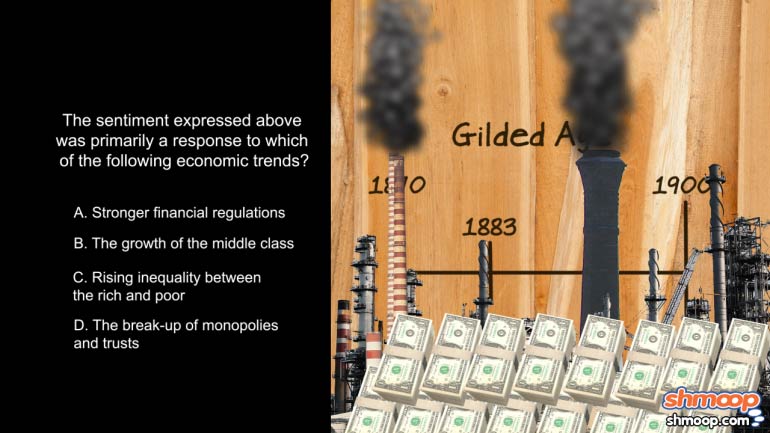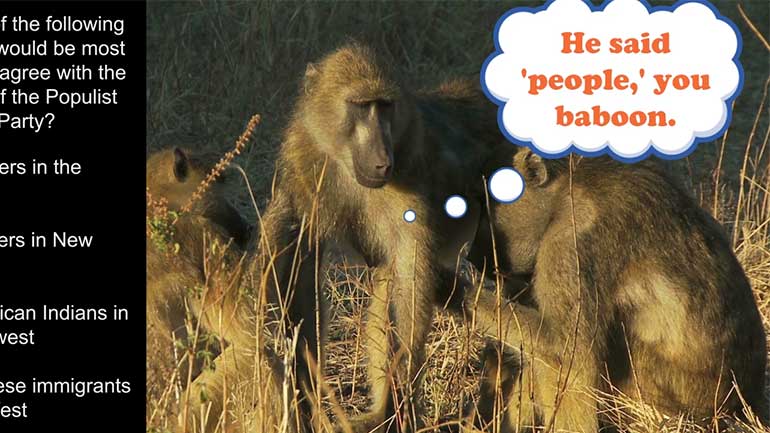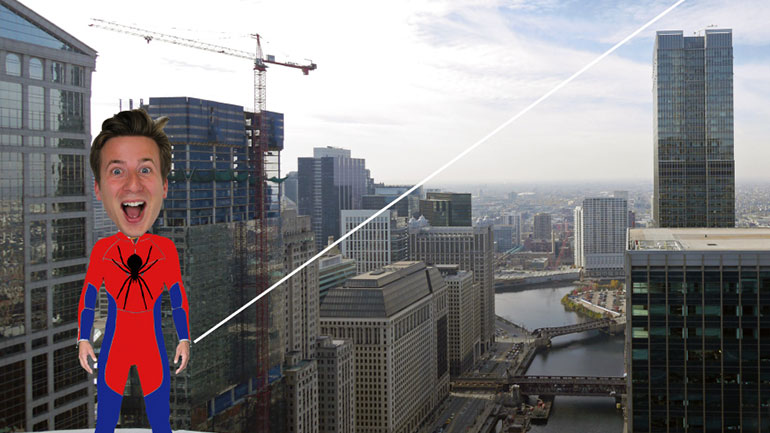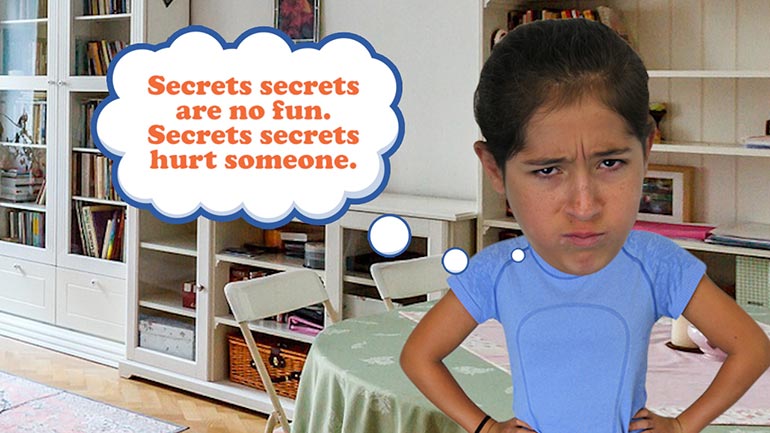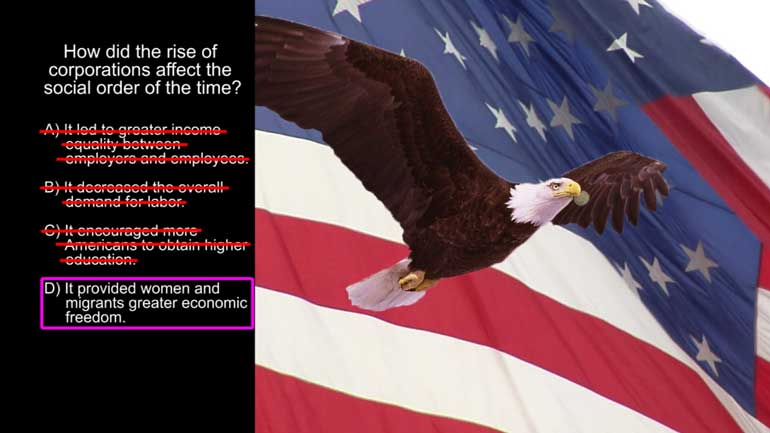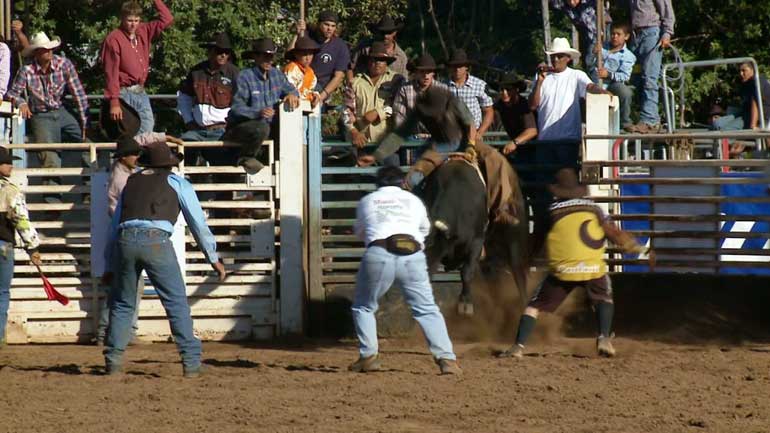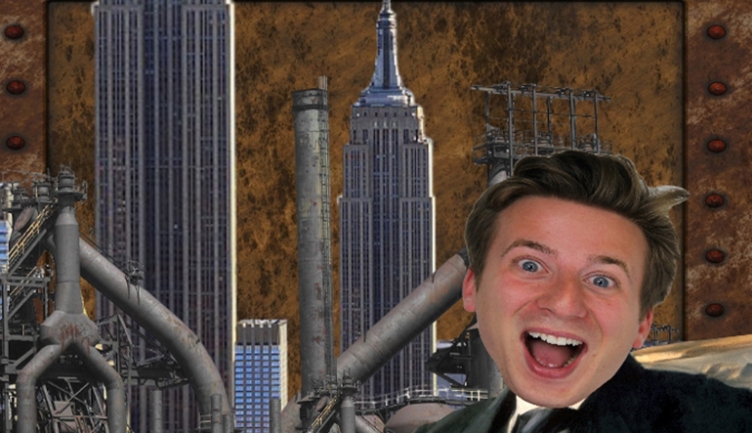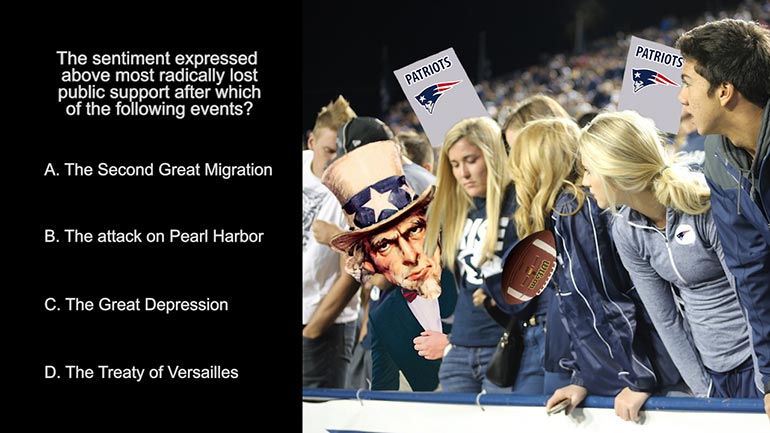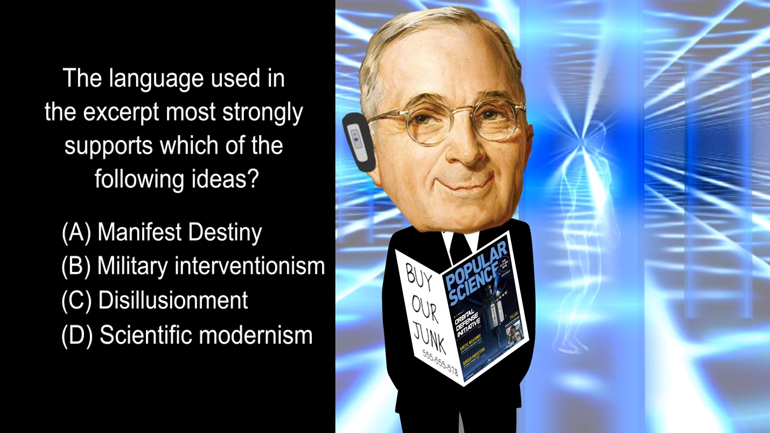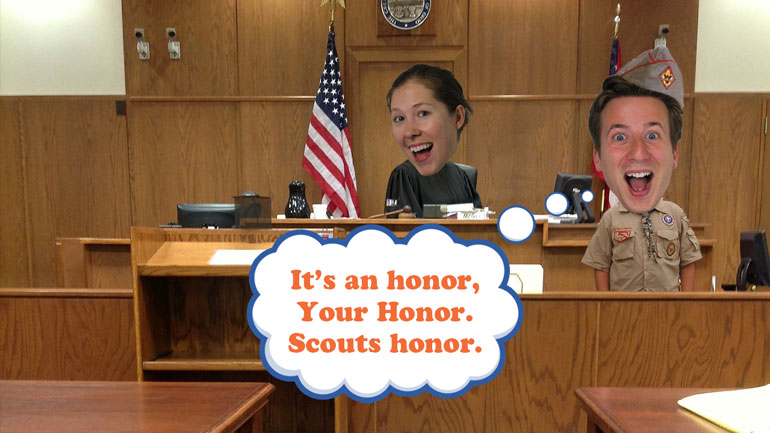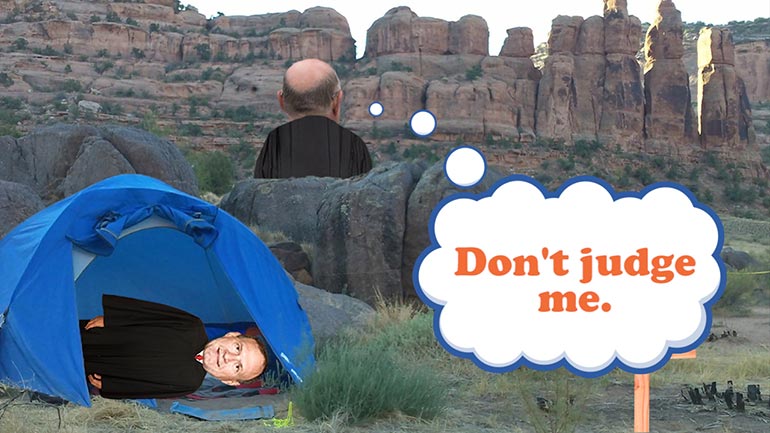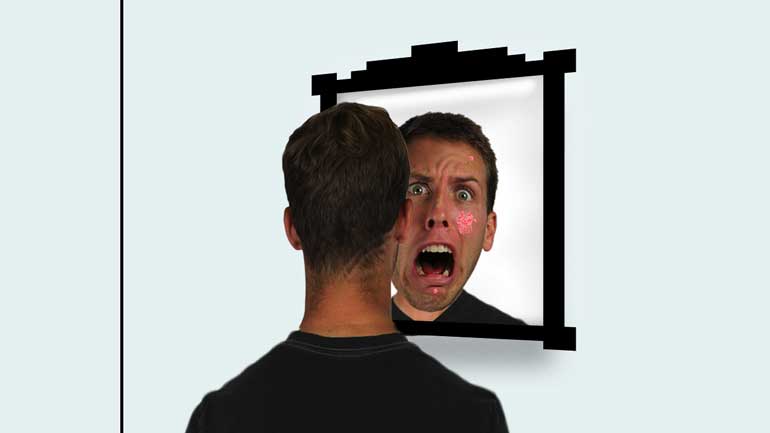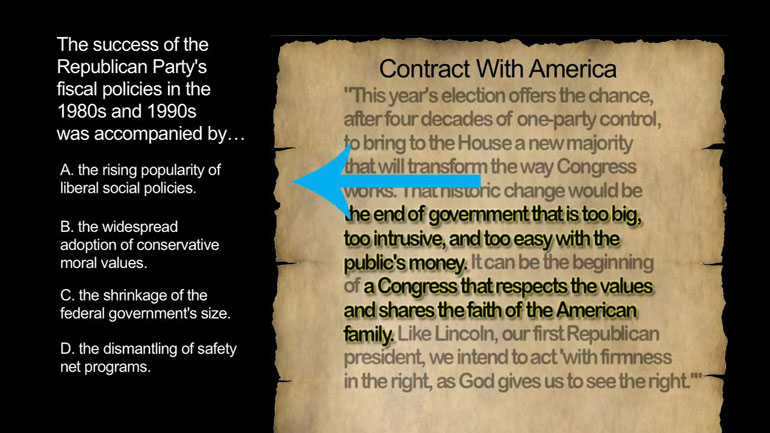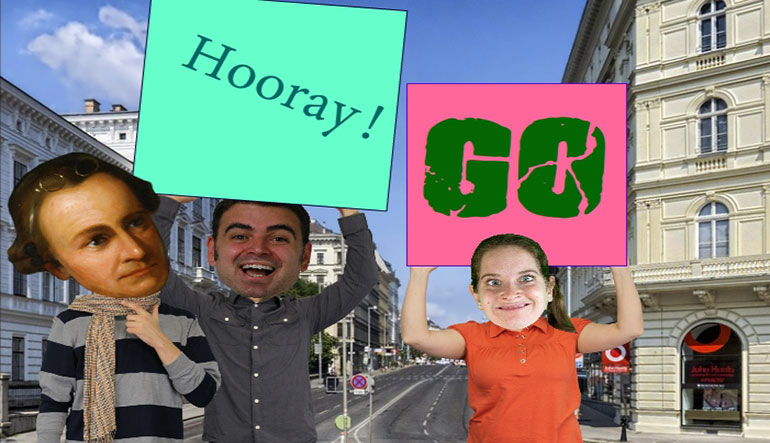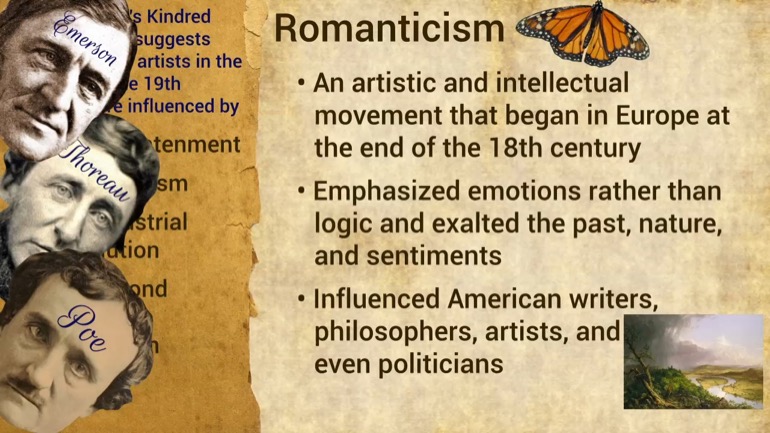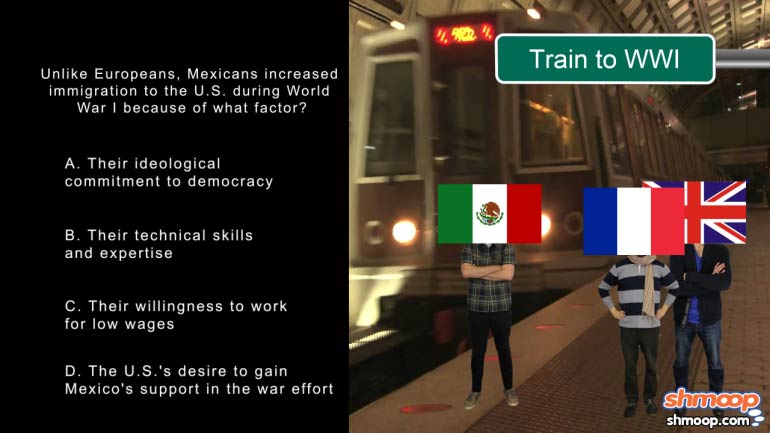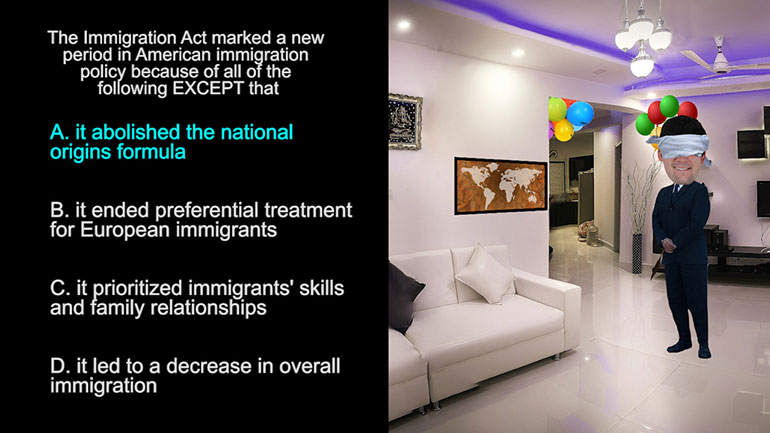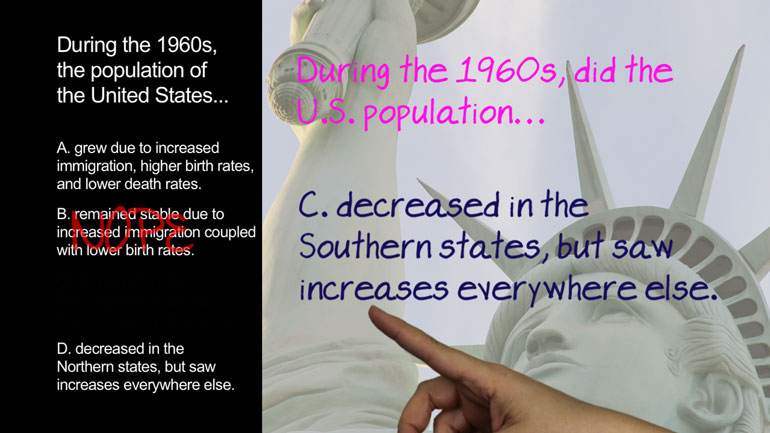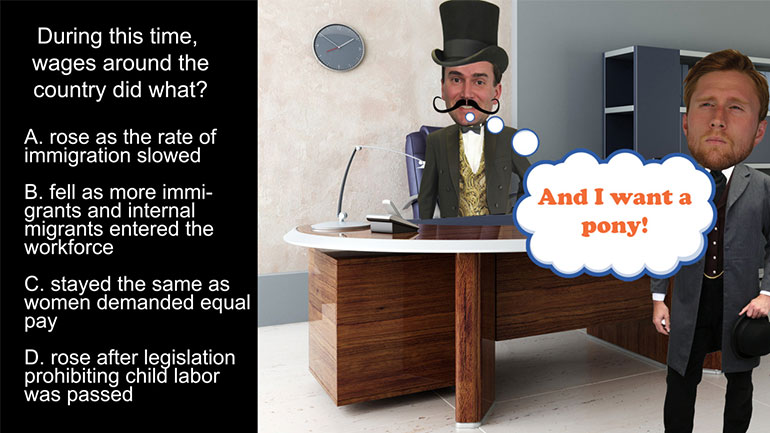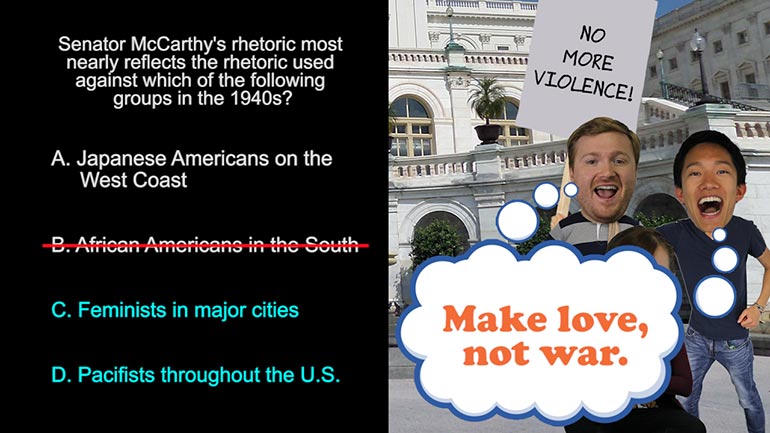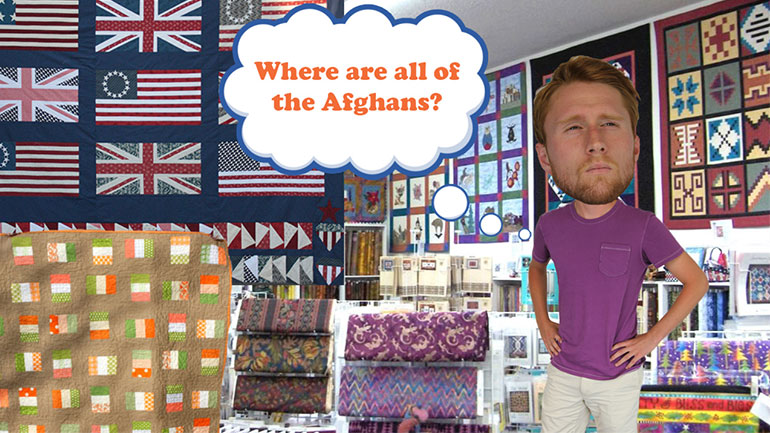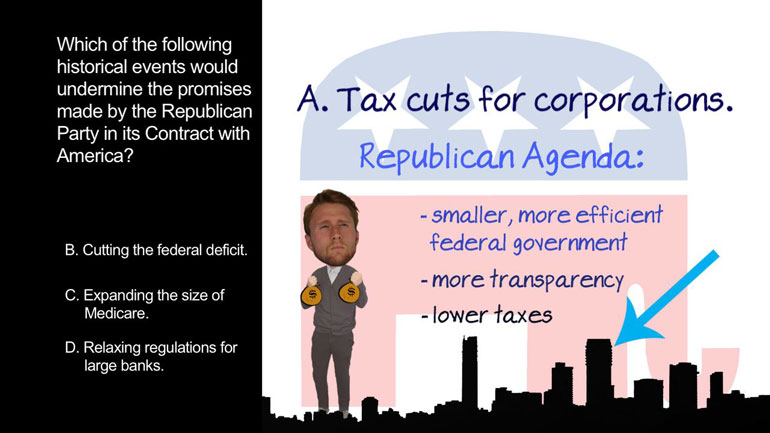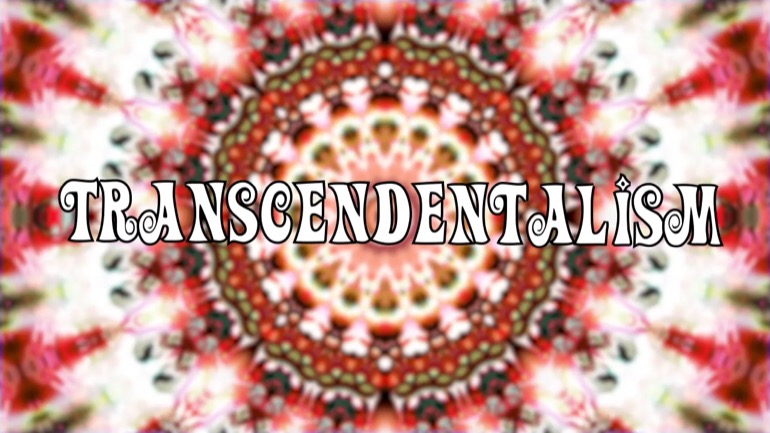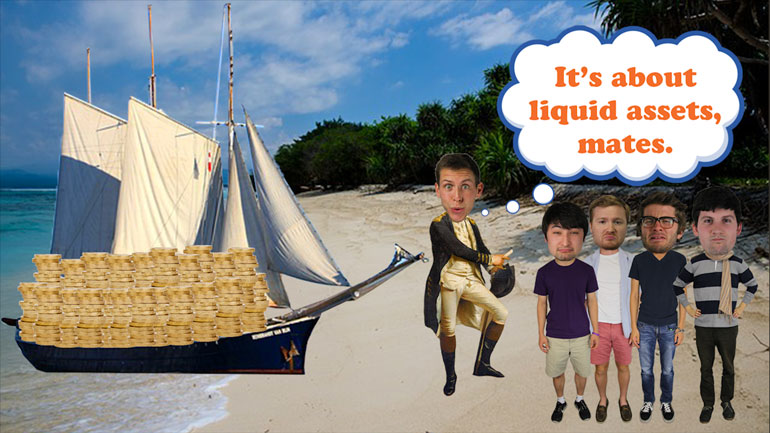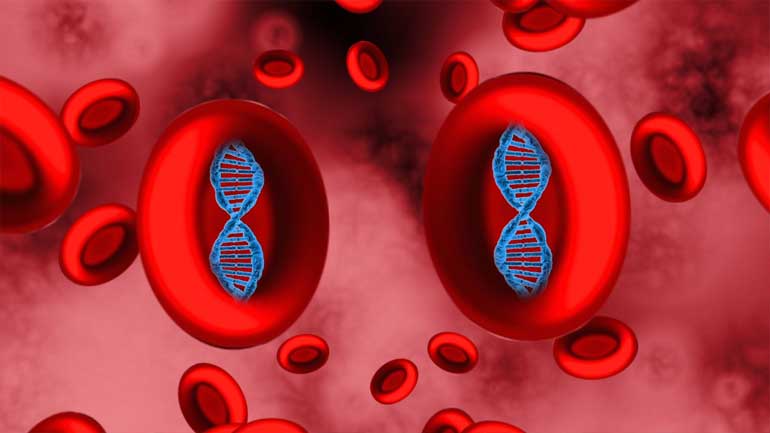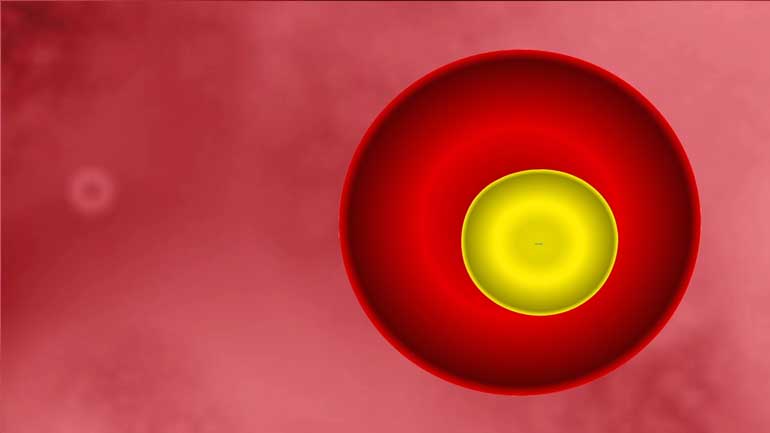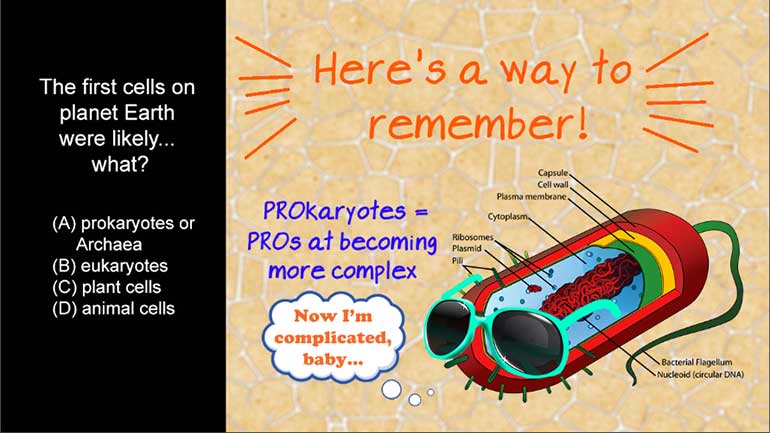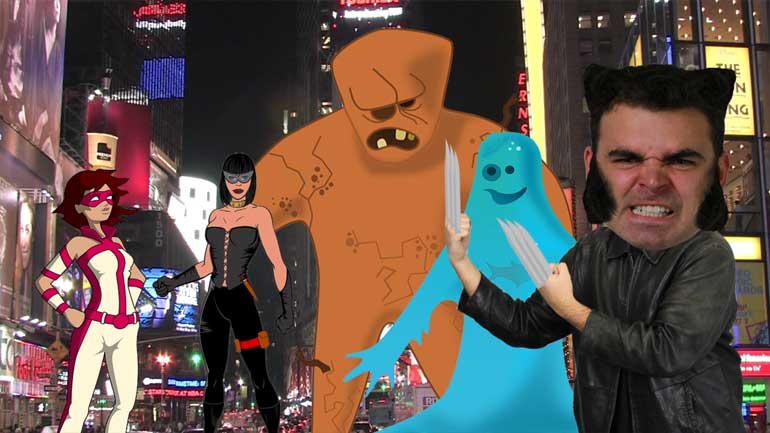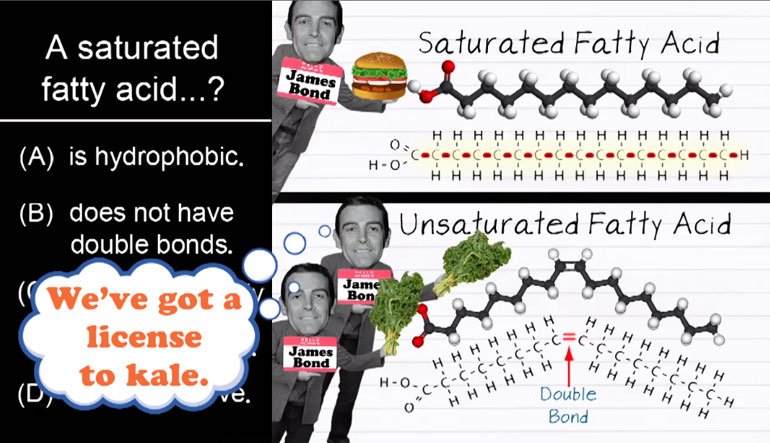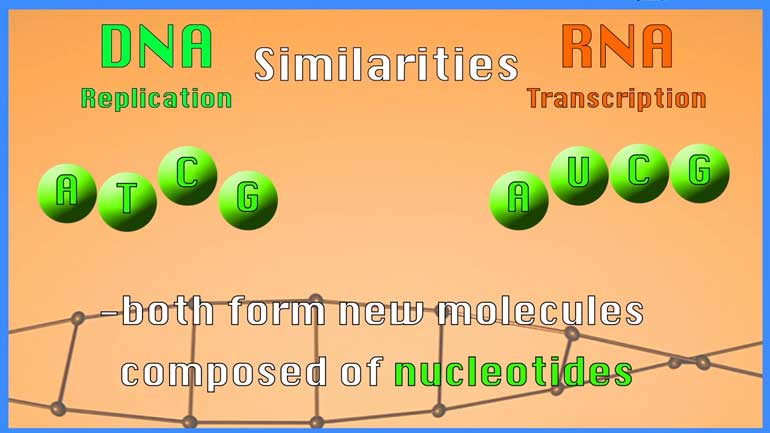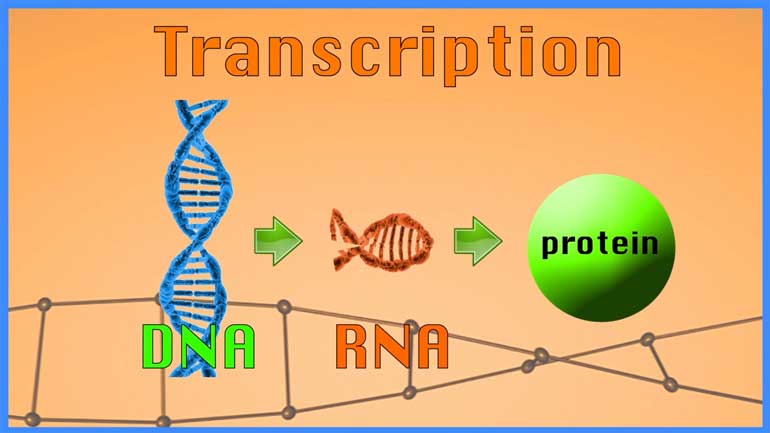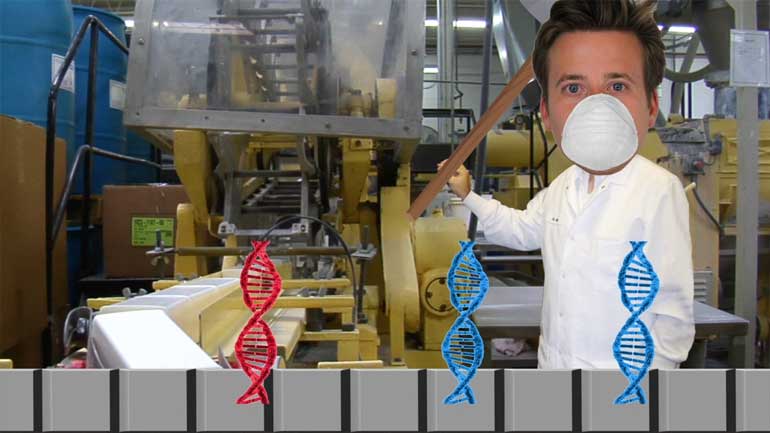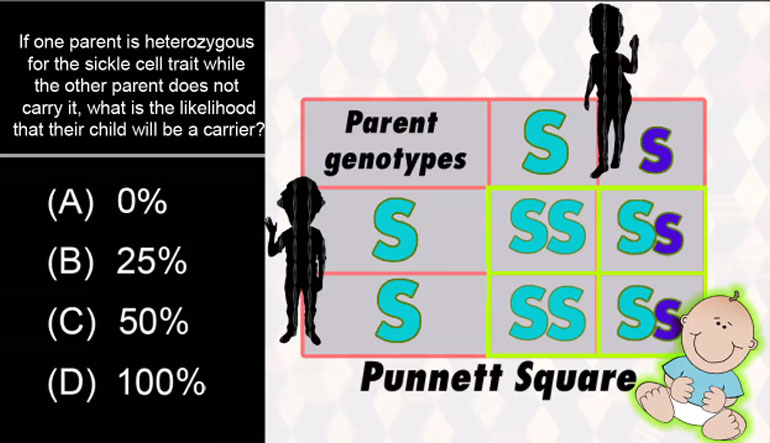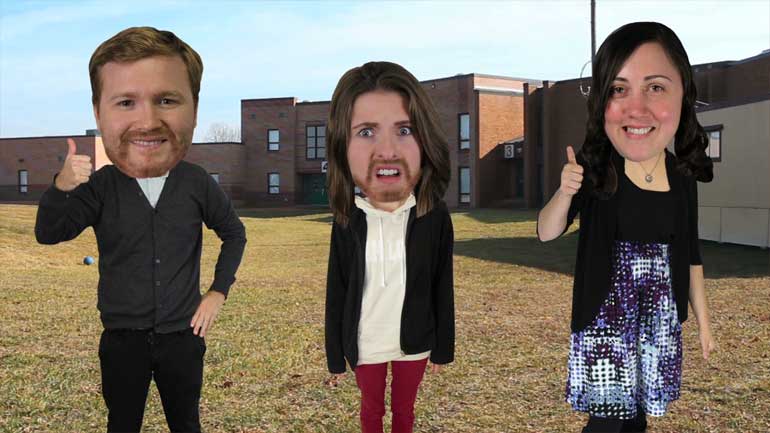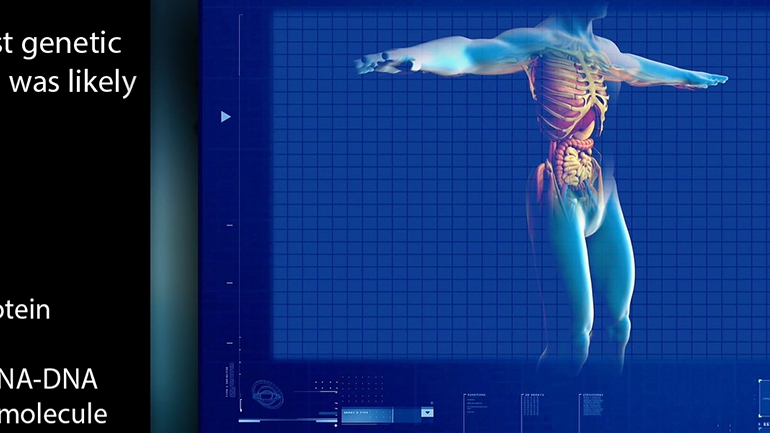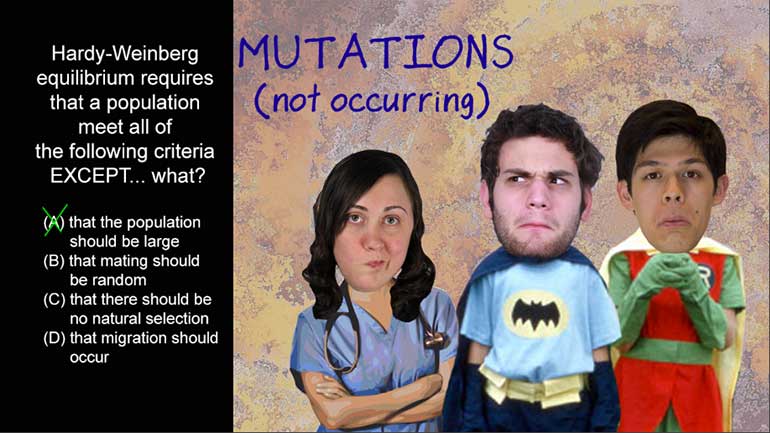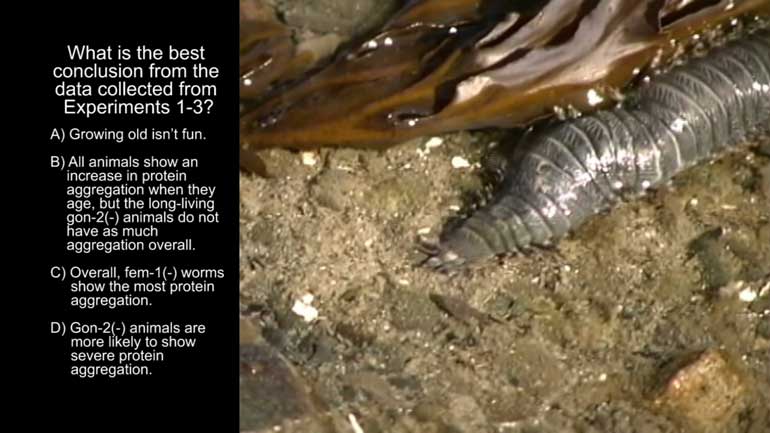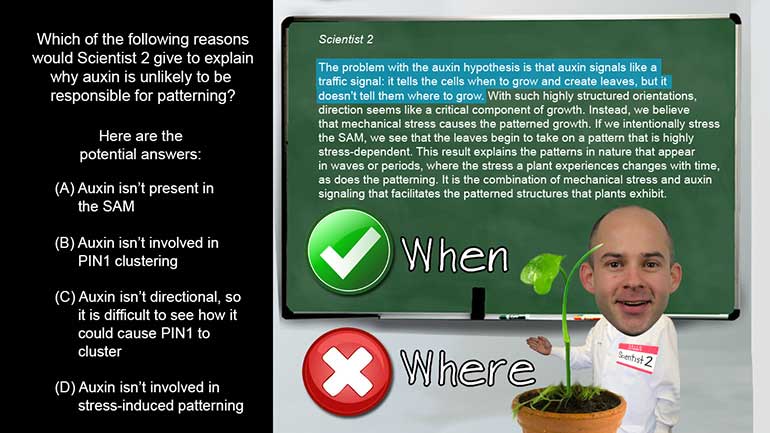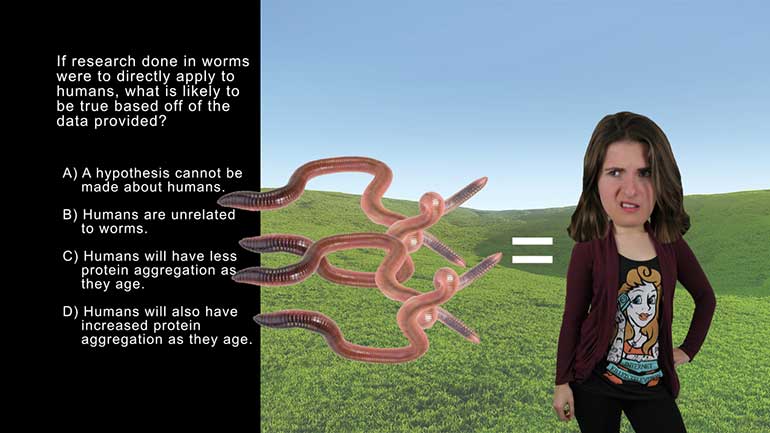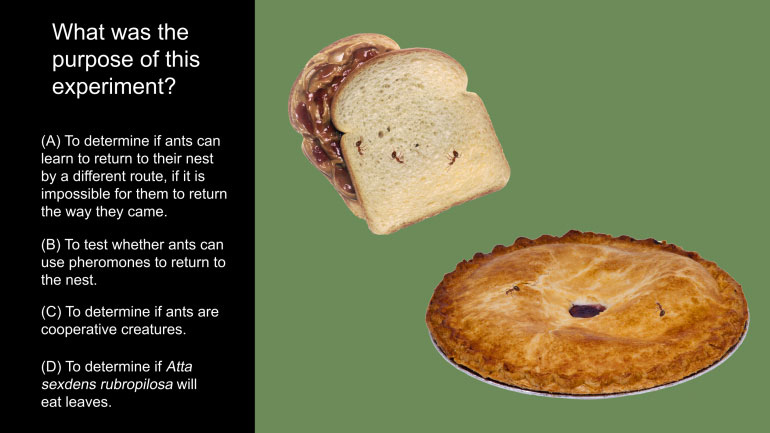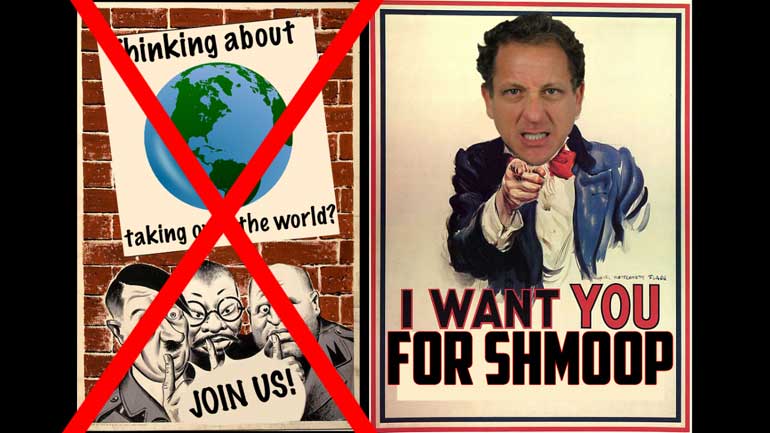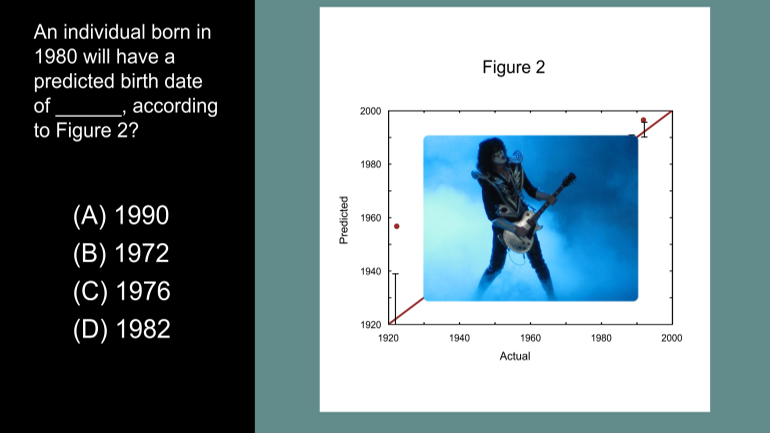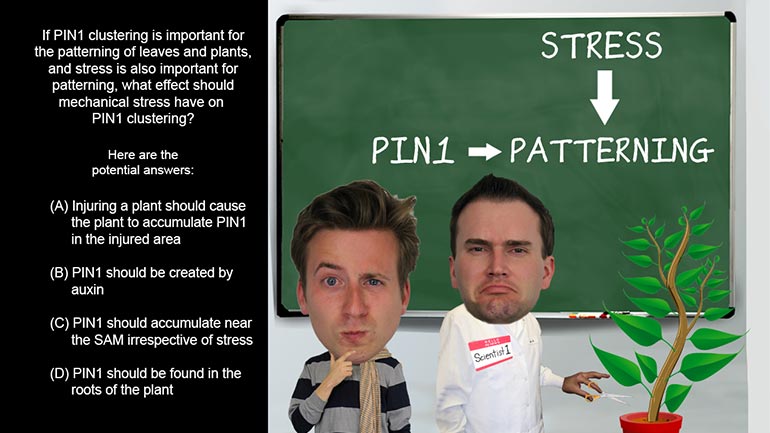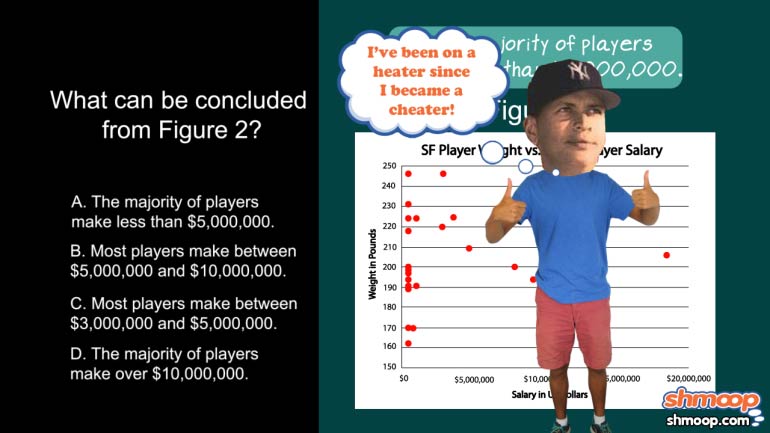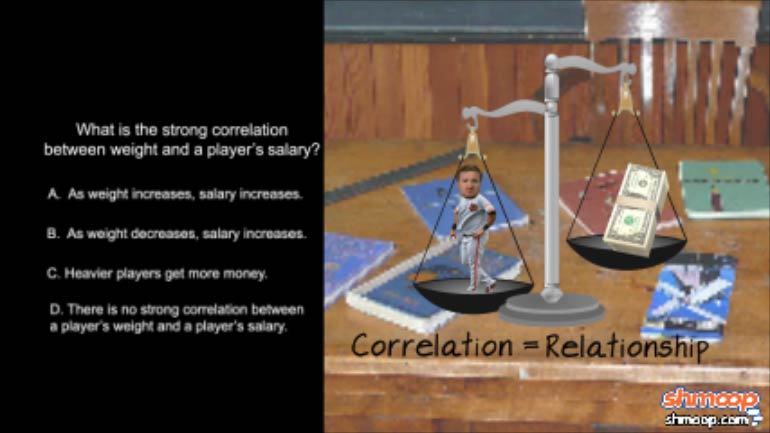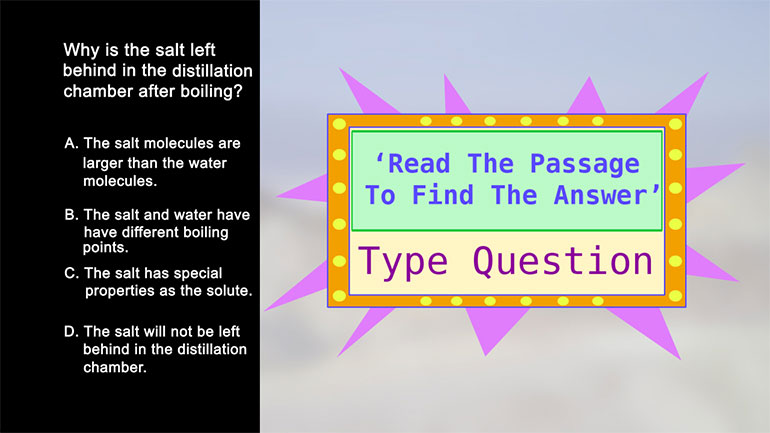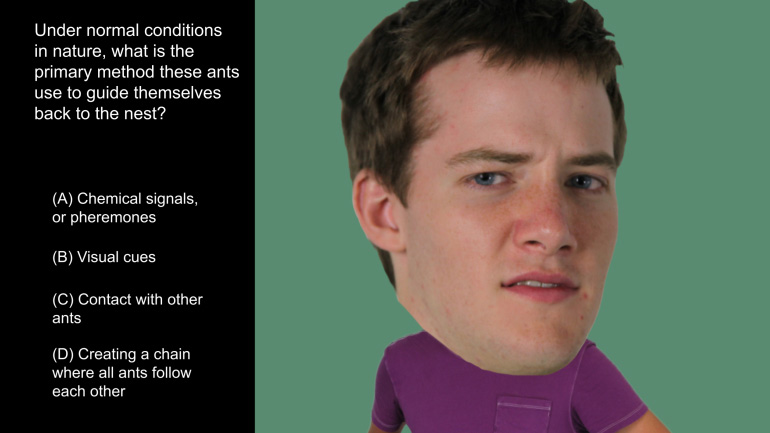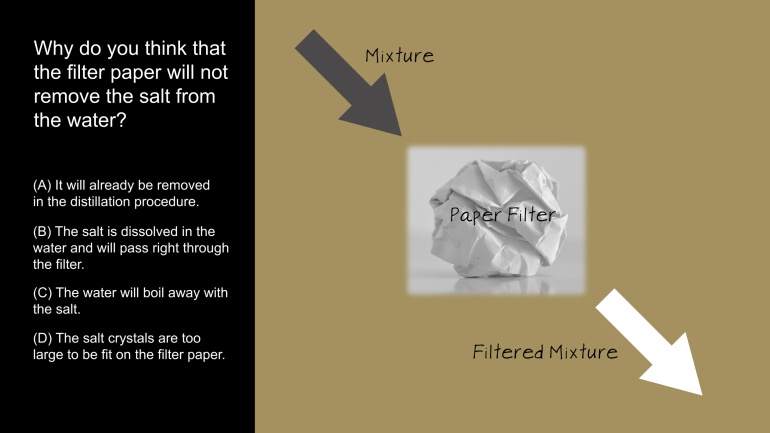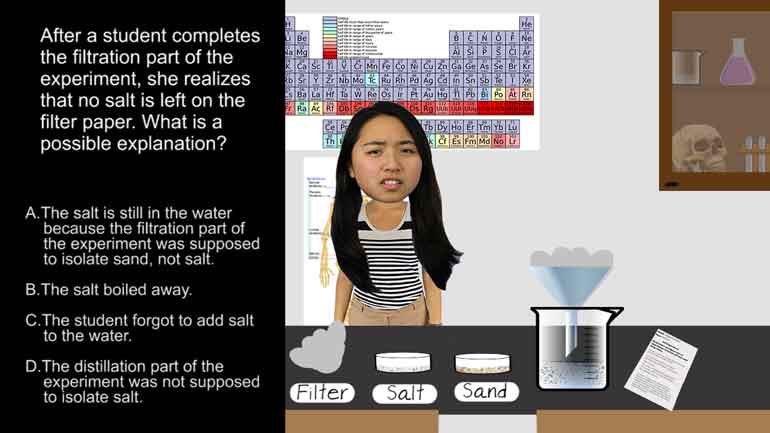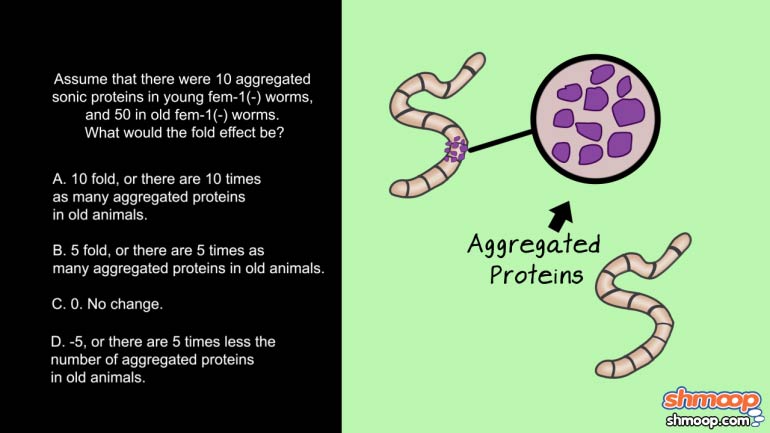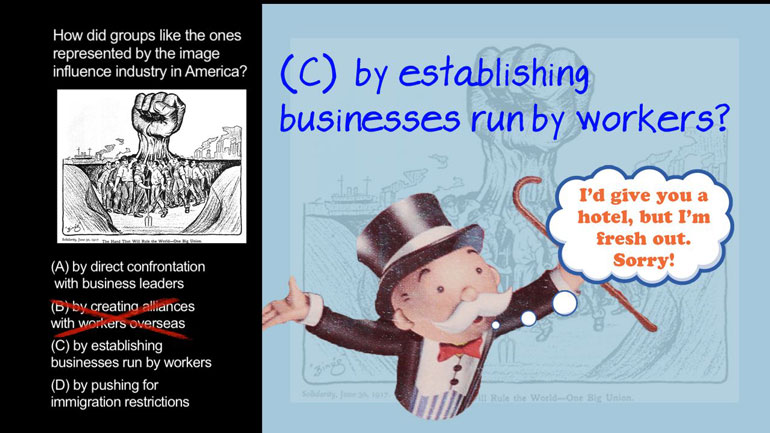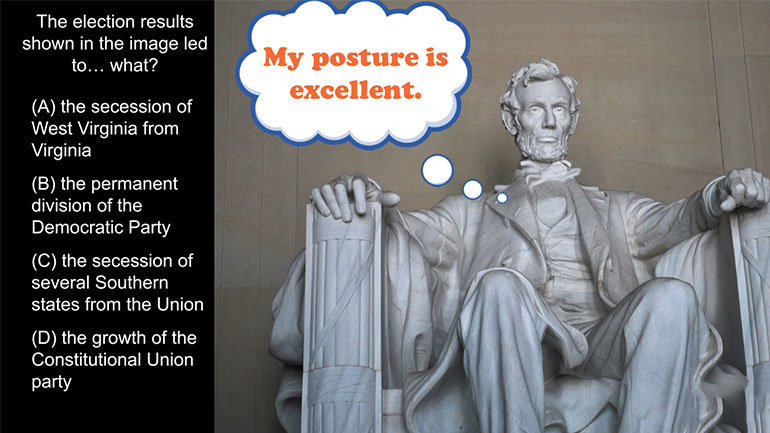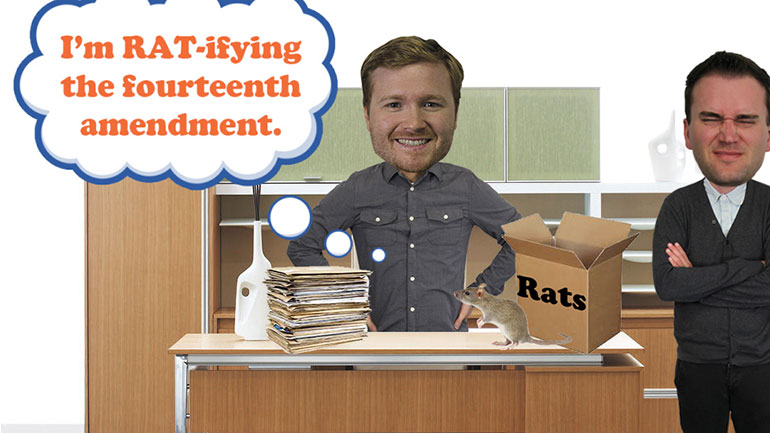ShmoopTube
Where Monty Python meets your 10th grade teacher.
Search Thousands of Shmoop Videos
Texas EOC Videos 540 videos
AP U.S. History 1.1 Period 5: 1848-1877. Which of the following groups would be most likely to support the idea of Manifest Destiny?
In the 1950s and 60s, people weren't just expressing their feelings toward the government—they were singing them, too. (Think Crosby, Stills, Nas...
Deal or no deal? FDR's New Deal provided hundreds of thousands of jobs in the public sector to bring the economy out of the Great Depression. It wa...
AP U.S. History 1.5 Period 9: 1980-Present 197 Views
Share It!
Description:
AP U.S. History 1.5 Period 9: 1980-Present. The domestic changes that Nojeim describes occurred alongside...what?
Transcript
- 00:00
[ musical flourish ]
- 00:03
And here's your Shmoop du jour, brought to you by the PATRIOT Act,
- 00:06
Patrick Henry's one-man show.
- 00:08
Ba-dum-bum.
- 00:09
Here's the excerpt.
Full Transcript
- 00:10
[ mumbles ]
- 00:14
[ mumbling continues ]
- 00:19
All right, and the question:
- 00:20
The domestic changes that Nojeim describes occurred alongside... what?
- 00:25
And here are your potential answers.
- 00:26
[ mumbles ]
- 00:30
All right, what does the question mean by
- 00:32
"domestic changes"?
- 00:33
No, not deciding to fire your butler.
- 00:36
In the excerpt, the author refers
- 00:37
to "new anti-terrorism measures" that
- 00:40
"fit into three broad themes:
- 00:42
secrecy, erosion of checks and balances,
- 00:46
and circumventing long-standing personal privacy protections."
- 00:50
Say that three times fast.
- 00:52
All right, those measures collectively were
- 00:54
policies in the PATRIOT Act,
- 00:56
passed by Congress in October 2001 following the attacks
- 00:59
of September 11th.
- 01:00
Let's check out the answers and see what else happened
- 01:02
around the same time this law came into effect.
- 01:05
Did these domestic changes occur alongside B -
- 01:08
economic policies that sought to make the world more interconnected?
- 01:12
Well, hmm. After September 11th, the U.S. made little effort to
- 01:15
increase economic interconnectivity, since
- 01:17
things were a little dicey on the "let's all be friends" front.
- 01:20
So it's not B.
- 01:22
Was the PATRIOT Act accompanied by C -
- 01:24
legislative reforms that promoted immigration from the Middle East?
- 01:28
Well, actually, xenophobia and anti-Islamic sentiment
- 01:32
were at an all-time high,
- 01:33
so this doesn't really make sense, either.
- 01:35
Could these domestic policy changes have been followed by D -
- 01:38
immediate public backlash against the new measures?
- 01:41
Well, quite the opposite, really.
- 01:43
Many Americans reeling from the terrorist attacks
- 01:46
enthusiastically supported the curtailment of civil liberties at home.
- 01:50
So people were down to party
- 01:52
with the government watching their party.
- 01:54
That means the PATRIOT Act occurred alongside A -
- 01:57
military intervention aimed at combatting terrorism.
- 02:01
The U.S. responded quickly and boldly to the attacks of September 11th.
- 02:05
Besides the PATRIOT Act,
- 02:06
America invaded Afghanistan in October of 2001,
- 02:10
and Iraq in March of 2003.
- 02:12
So A is the correct answer.
- 02:14
All of these actions were a part of the so-called
- 02:16
"war on terror,"
- 02:18
yet for all we did, the Saw movies managed
- 02:20
to escape unscathed.
- 02:23
Have you ever seen those Saw movies?
- 02:24
It's like oh, my God, terrifying.
- 02:26
Like I can't sit through them.
Related Videos
AP U.S. History Diagnostic 1. Relationships like the one shown in the image resulted in the development of...what?
AP U.S. History Diagnostic 15. How did groups like the ones represented by the image influence industry in America?
AP U.S. History Diagnostic 10. What led to the splintering of the political parties shown in the image?
AP U.S. History Diagnostic 11. The election results shown in the image led to...what?
AP U.S. History Diagnostic 12. How did the Reconstruction Acts open up political opportunities for former slaves?

